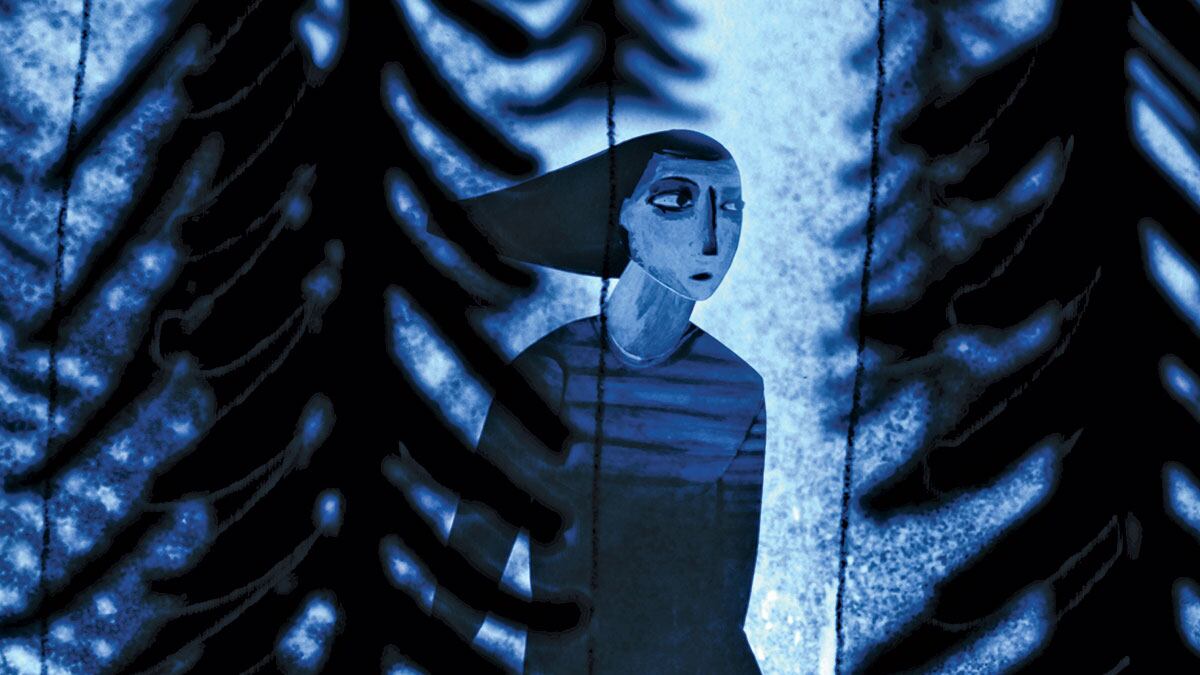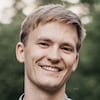For many of the 20-plus years Laura Heit has crafted visual art through animation, puppetry, shadowy installations, experimental theater and short films, she's also taught. And as the technology for directors and animators has leaped forward, so too has the frequency of a certain question from her students: "Am I able to undo?"
Call it a natural inquiry from artists-in-training, but it's pushed their instructor (now at Pacific Northwest College of Art) to work more instinctually when donning her teaching hat.
"Animation these days can get so perfect," says Heit, who lives in Portland and whose film work dating back to 1997 will be showcased Jan. 10 at NW Film Center's Whitsell Auditorium. "I want that fallibility."
That much is discernible in her two latest shorts. The first, last year's Snow Lee Leopard, reveals Heit morphing the sculptures of Oregon artist Lee Kelly. The film's abstract shapes transform and evaporate so quickly and freely, it'd feel like a drawing exercise if the visual wasn't underscored by palpitating percussion (courtesy of Daniel Charles Hunt) and an otherworldly sense of timing in the editing.
Heit's other 2018 project, A Universe, is a grainy, joyous short she submitted to the Northwest Filmmakers' Festival 50 Foot Challenge, a screening of projects shot on 50 feet of Super 8 film. For her entry, Heit was appropriately drawn to a pair of budding artists who wouldn't have a passing thought about the notion of "undoing": two children (one her own) freewheeling around a school blacktop with sidewalk chalk.
"[The kids] are not concerned with it looking like a certain something," Heit says. "It's just hand and line."
For museum curator, arts writer and viewer alike, it's difficult to spin a cumulative meaning from Heit's mostly wordless, non-narrative work. However, Heit, on occasions such as this career retrospective, can offer a theme if she takes a large enough step back for perspective. Regardless of medium, she cites an overarching interest in elusive images: moments too brief to see, too distant to realize or too imagined to feel quite real when we do actually see them.
That idea helps explain the space motif in two more of Heit's short films—Apollo Six and Rover's Eye—which she released in 2015 after NASA made a trove of archival footage public. In both, an unmanned spacecraft captures footage of a planet (Earth in the former, Mars in the latter) and all of its vastness. Then, Heit animates figments and figures over the desolation: human forms floating through space like a cartoon River Styx, or triangles that look almost like little sailboats crossing Mars' red deserts.
"I was trying to make sense of the fact that we accept images from machines despite our deep human curiosity," Heit says. "I don't mean that in a conspiratorial way, but those [original] images don't seem true enough to me."
Granted, these particular reads on Heit's work aren't guaranteed to jump out to the average viewer. You're just as likely to sink into the mood of the shorts, start thinking about your day, your aspirations, your regrets, and then eventually snap back to attention, focusing once again on the symbols before you. And in Heit's view, that's an acceptable response for more reasons than one. She finds the value of abstract art goes beyond its interpretive nature that knows no bounds.
"Abstraction offers a way into the work that's open to anybody, where a narrative film is going to tell you how to come in," says Heit. "For a lot of reasons, especially diversity, that limits how you can come in. An abstract piece is open to who you are, how you came to it and who's sitting next to you."
SEE IT: A Universe: Films by Laura Heit screens and the director will lead a post-film panel discussion at NW Film Center's Whitsell Auditorium, 1219 SW Park Ave., nwfilmcenter.org, on Thursday, Jan. 10. 7 pm. $5-$10.

